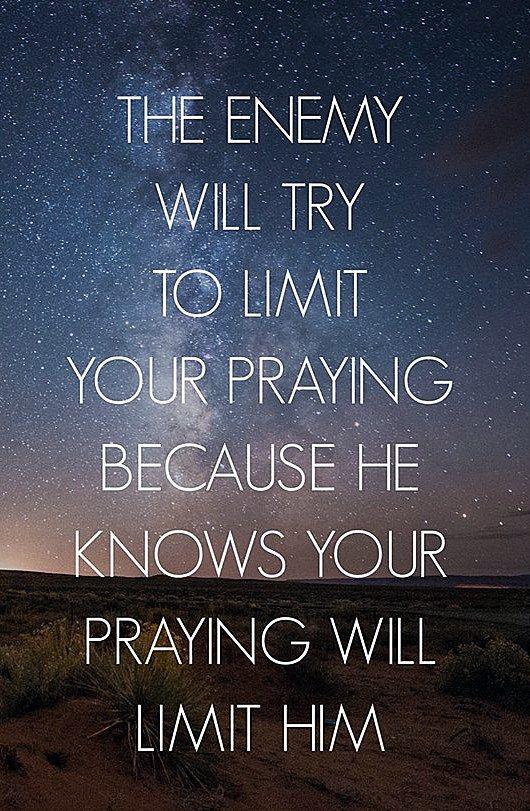Most religions around the world laud the efficacy of intercessory prayer.

"And I will do whatever you ask in my name, so that the Father may be glorified in the Son. 14 You may ask me for anything in my name, and I will do it."
"When you ask (for anything), ask it from Allah, and if you seek help, seek help from Allah."
"Prayer is the very soul and essence of religion, and therefore prayer must be the very core of the life of man."
Many are certain that in fact prayer really works. They will point to anecdotal cases where a person they know was healed, or perhaps received something they needed. In order to prove that this actually works dozens of studies have been conducted to determine the efficacy of intercessory prayer. These studies have had varying results from prayer having a positive effect, no effect, or in some cases even a negative effect. This is problematic. In this myTake I will just reference a few of the studies. Before I go further though I think it important to note that prayer has been linked to several beneficial effects to the prayer themselves, so I will discuss it first.
Yes. Prayer can help the individual.
Prayer has consistently been linked with several preferable health benefits. Actually, they share the same benefits that meditation does, namely, lower blood pressure and heart rate, increased confidence and content, and lower stress and anxiety. There are several reasons for this including the placebo effect, and the Rosenthal/ Hawthorne effect.
Effects of remote, retroactive intercessory prayer on outcomes in patients with bloodstream infection: randomised controlled trial was a rather strange study conducted by Leibovici. In this study Leibovici tried to retroactively (after the fact) pray for persons with a blood disorder. He had two randomly selected groups and prayed for the persons 4-10 years after the fact. He stated, "The purpose of the present study was to extend these observations to patients with another severe disorder, bloodstream infection. As we cannot assume a priori that time is linear, as we perceive it, or that God is limited by a linear time, as we are". He looked at three factors; death, length of hospitalization, and length of fever. After the time of prayer was over he looked at the data and found a slightly statistically significant correlation between retroactive prayer and length of hospitalization and fever, but not death. He then concludes that we should use prayer as a treatment as it is both cost-effective and not likely to be harmful.
This research has faced a lot of... scrutiny in the peer reviewed literature as having a problematic methodology, is disputed by other studies, and as having no real probative effect on health.
Does prayer influence the success of in vitro fertilization-embryo transfer? Report of a masked, randomized trial by Cha KY and Wirth DP was a study which seeked to determine whether or not a woman was more likely to get pregnant via IVF-ET if being prayed for. In this study there was a really strong correlation between prayer and successful IVF-ET. The study found that the prayer group was almost twice as likely to be successful! In this study Christian persons prayed in a sort of cocentric circle. The first group prayed for the women, the second group prayed for the efficacy of the first's prayers, and the third for the second's. These prayer groups were conducted in the US, Canada, and Australia and the women prayed for were in China.
This study has since been questioned for several reasons. Largely around the authorship. Originally it was published that a third author, Dr. Lobo, was the lead researcher, but he denied this stating that he only came in at the end and only offered editorial assistance. Then another author, Mr. Worth, has since been arrested for fraud and many wonder if this had an effect. Dr. Cha states that this is not the case, but admits that there needs to be more research on the subject.
The effect of intercessory prayer on wound healing in nonhuman primates by Lesniak KT published in a questionable journal Alternative Therapies in Health and Medicine looked at whether or not prayer helped twenty-two bush babies who were involved in self injurious behavior. In this study two groups were constructed, one with intercessory prayer and L-tryptophan and one with L-tryptophan only. She found that these self-inflicted injuries were smaller or less in the group that also received prayer.
I looked really hard but could not find the full article and the methodology given in the abstract was extremely cursory. I need to know more about the methodology and procedure before I can really comment, but I have to admit that I find it telling that it was published in a poor journal and was published by a professor at a Seventh Day Adventist school.
The efficacy of distant healing for human immunodeficiency virus--results of a randomized trial Astin JA, Stone J, and co. assessed whether or not there was a correlation between prayer and treatment of persons with HIV. They created three groups; prayer from "professional" healers, prayer from non-professional healers, and no prayer. There was no significant correlation either way.
Intercessory prayer and cardiovascular disease progression in a coronary care unit population: a randomized controlled trial Aviles JM1, Whelan SE and co is a very interesting study that looked into whether or not prayer would help prevent persons with coronary risk from having a cardiac event. They had 5 people praying per patient and discovered no significant relationship.

In conclusion, it doesn't seem that intercessory prayer has any consistently notable affect. The studies that demonstrate a correlation seem problematic, and are contested by much of the other research. Thanks, if you read this far. As always, criticism appreciated.
Most Helpful Opinions